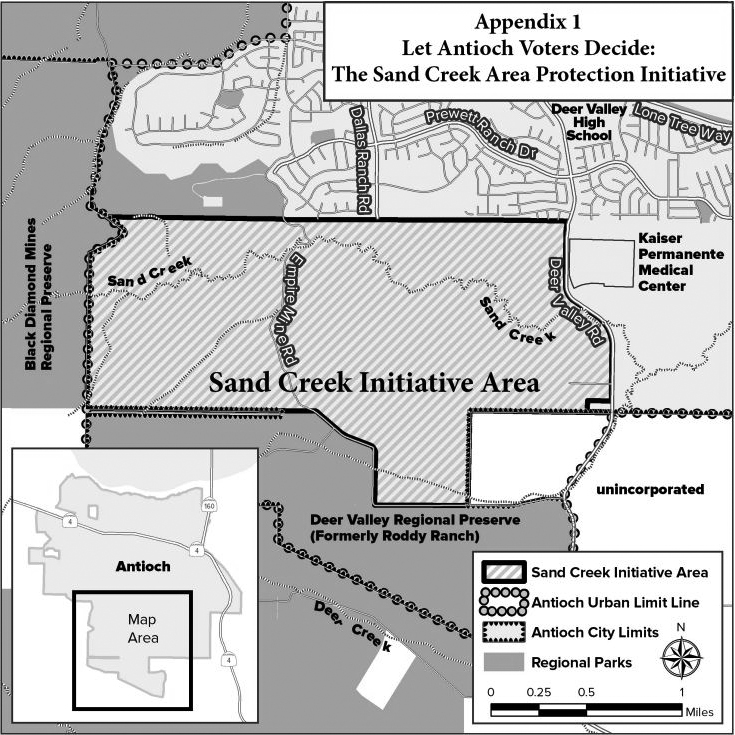 By Daniel Borsuk
By Daniel Borsuk
A spike in assaults and crimes against Asian Americans and Pacific Islander citizens has triggered the Contra Costa County Board of Supervisors on Tuesday to publicly condemn the rising number of attacks. CCCBOS Resolution Condemning Xenophobia and Hate Crimes Against Asian American Pacific Islander (AAPI) Communities
Since the COVID-19 pandemic began in March 2020 there have been about 3,700 attacks on Asian Americans and Pacific Islanders in the San Francisco Bay Area.
On March 19, President Biden proposed $300 million to improve public safety for Asian Americans and Pacific Islanders
“Too many Asian Americans have been walking up and down the streets and worrying, waking up each morning the past year feeling their safety and the safety of their loved ones are at stake.” President Biden said on March 19. “They have been attacked, blamed, scapegoated and harassed. They’ve been verbally assaulted, physically assaulted, killed.”
Supervisors approved the resolution at the request of District 4 Supervisor Karen Mitchoff who brought the issue to the attention of Chair Diane Burgis. Mitchoff’s chief of staff, Anne O, recommended that the board consider a resolution condemning attacks on the Asian and Pacific Islander citizens because her parents reside in Oakland’s Chinatown, a main area where assaults on Asian Americans have occurred especially to the elderly.
Supervisors did not hear any speakers either in favor or against the proclamation.
“The reality is racism and hate happen every day to Asians, Latinos and Blacks,” said District 1 Supervisor John Gioia. “We need to put it all together and to stand up against those that promote hatred against Asians. We need to do more than calling it out.”
“Racism is very widespread,” said District 5 Supervisor Federal Glover. “We know that it exists. This situation really highlights the issue we have in the United States.”
Supervisor Mitchoff Wants County to Super-Charge County’s Electric Vehicle (EV) Fleet
The Contra Costa County Board of Supervisors wants to jump start its sluggish Electric Vehicle fleet acquisition efforts, especially when Mitchoff inquired at Tuesday’s meeting if the county is actively applying for state and federal grants to assist the county in the purchase of electric vehicles (EVs).
The answer, was yes, from County Administrator Monica Nino, but Mitchoff, who represents the county on the San Francisco Bay Air Quality District Board which awards grants to counties to buy EV vehicles. Contra Costa faces stiff competition from counties like Santa Clara to be awarded the air board grants to acquire EVs.
Out of a fleet of 1,569 vehicles, equipment and trailers, 951 are vehicles in Contra Costa County’s Internal Service Fund, County Director of Public Services Brian Balbas wrote in a March 8 report to the supervisors’ Internal Service Committee.
Currently, 2.2 percent of the county’s fleet of vehicles are electric powered, 2.4 percent are Compressed Natural Gas (CNG) powered, 16.2 perc are Hybrid, 8.8 percent are Renewable Diesel powered, and 70.4 percent are Unleaded gasoline vehicles.
“Fleet Services continues to promote building a ‘Green Fleet’ by purchasing 8 electric and 17 hybrid vehicles as replacement vehicles in 2019-2020,” Balbas reported. In 2019-2020, the county spent $16,311,795.
Mitchoff admitted it is difficult for the county to get grant money for Contra Costa County to purchase EVs when Santa Clara County tends to be awarded most of the air district’s grants for EVs.
“This is where we ought to be moving,” she said in reference to increasing the county’s low EV fleet. “The President and the Green Economy direct us how we should address the budgetary process.”
In a related item, supervisors approved a letter of support for the GRID Alternatives, a nonprofit corporation, to have PG&E serve as implementer for the Empower EV Program that intends to reduce barriers to electric vehicle acquisition in low and moderate-income communities. The program was approved by the California Public Utilities Commission in 2019.
The $4 million program will provide incentives for up to 2,000 low- and- moderate income households to cover the costs of a residential EV charger, increase awareness of the benefits of EV adoption through targeted education and outreach, and provide information on other incentives and programs available to customers. PG&E has named “the Bay Point to Discovery Bay corridor area,” as a region of focus for Empower EV.
GRID Alternatives, a Bay Area non-profit that installs solar energy in low-income communities while providing job training and helps low-income persons access clean vehicles, is applying to be the implementer for Empower EV.
16-Year-Olds to Get COVID-19 Vaccines
With the Contra Costa Health Services and State of California having inked a Memorandum of Understanding on the allocation of COVID-19 vaccine (Pfizer), Contra Costa Health Services Director Anna Roth reported that the county is ramping up accessibility of the vaccine to Contra Costa County residents 50 years and older and will soon open the vaccination program to anyone 16 years old and older.
Roth expected eligibility will open in the next seven days. She asked the public to be patient when attempting to make an appointment. Soon the county will open the Richmond Center and Bay Point Clinic to accommodate citizens registering to be vaccinated.
“Forty-four percent of resident have at least one dose of the vaccine,” Roth said. “We are removing barriers and making it easier to get the vaccine.” She expected by April 15 the county will be in full compliance with the state.
Chief Equity Officer Gilbert Salinas reported that 19 additional ambassadors have been added to help register persons in communities like Bay Point, San Pablo and Richmond, communities with high numbers of black and Latino residents.
Deputy Health Officer Dr. Ori Tzviell said with Easter almost here, he advised that persons continue to wear masks and social distance as much as possible. “Outdoors is better than being indoors,” he said. “Outdoors is safer for grandparents. It’s always safer to wear a mask.”
Approve Density Bonus for Walnut Creek Apartment Project
Supervisors approved as a consent item a density bonus inclusionary housing development agreement for the proposed 284-unit Del Hombre Apartments planned for Del Hombre Lane between Roble Road and Honey Trail in Walnut Creek. Under the agreement, the developer is required to set aside five percent of the total number of rental units to moderate income households for a minimum of 55 years.
The development will include 21 studio units, 174 one-bedroom units and 89 two-bed-room units all located in one building. In addition, the development will include parking, landscaping, a community building, laundry, a pool, long-term bicycle storage, and trash enclosures.
Recognize Employees Skeritt, Emigh, Waters for Years of Service
Supervisors recognized Kevin L. Emigh for 33 years of public service with the Road Engineering Division of the Public Works Department, Election’s Divisions Warehouse Unit employee Chuck Waters for 25 years of public service, and Victoria Skerritt for her 14 years of service with the Public Works Department.
Skerrit, who started her career with the Public Works Department as an Administrative Services Assistant II in Special District was promoted to Administrative Services II in Special Districts in 2007 and to Administrative Services Assistant III in 2014. Known for training new staff, Skeritt, who helped establish the Special Districts Community Center Policy, the Alamo Summer Concert Series and the implementation of the Tree Asset Management Program for all Special Districts was part of the 2017 Special Districts team that received the J. Michael Walford Team of the Year Award for delivering eight projects to seven communities from initial planning to construction in a single construction season.
Emigh is retiring from the Public Works Department after a 33-year career. As a licensed Professional Civil Engineer in California since 1993, some of his major projects that he played a part in the design and construction during his career include the Bethel Island Bridge, Iron Horse Overcrossing Project, Orwood Road Bridge, Alhambra Valley Road Washout Repair, Morgan Territory Road Slide Repair, Three Creeks Restoration and many others. Emigh received an Award of Excellence in June 1998 for his work designing and coordinating with the community on the Hilltop Drive Pedestrian Path-Phase 2 Project. He received an Award of Excellence in January 2000 for his contributions on the Editorial Board of Public Quirks Departmental Newsletter. He received an Award of Excellence in 2004 for his planning work and communicating with the community on the Rossmoor Detention Basin Project.
Waters, known as the Elections Division “MacGyver,” who would save the day by fixing anything with a paperclip, rubber band, straw or hammer, administered 73 elections during his career, including 11 primary elections and 12 general elections, seeing five different governors and five different presidents elected during this tenure. He is a certified technician, who maintained and repaired the county’s voting equipment, and provided regular safety lectures, while wearing his neon orange vest. He ensured that every Vote-by-Mail ballot was safely transported from Post Offices and Ballot Drop Boxes across Contra Costa County. He assures the Elections Division he will return to volunteer as an essential worker for future elections., the county proclamation stated.
Sheriff’s Deputy Acquires Service Dog Anavi for $1
Supervisors approved the request by Sheriff Deputy Timothy Allen to pay the county $1 for retired Sheriff’s Service Dog “Anavi.” Since Dec. 18, 2007, the board of supervisors had approved a resolution (No. 2207/172), which authorized the transfer of ownership of retired police canine (K9) service dogs to their respective handlers for $1.













 The Contra Costa County Board of Supervisors is seeking applicants interested in serving on its 20-member
The Contra Costa County Board of Supervisors is seeking applicants interested in serving on its 20-member 
 With the passage of the American Rescue Plan, more funding has been dedicated to programs that provide assistance and relief to small businesses and hard-hit industries during the COVID-19 pandemic. Congressman Jerry McNerney (D, CA-9) will hold a virtual town hall with Small Business Administration (SBA) officials on Thursday, April 1st from 5:30 PM to 6:30 PM to provide updates on SBA programs to help small businesses including the Paycheck Protection Program (PPP), Economic Injury Disaster Loan (EIDL), and the Shuttered Venue Operators Grant (SVOG). He will be joined by special guests Julie Clowes, District Director of the SBA San Francisco District Office, and Heather Luzzi, District Director of the SBA Sacramento District Office, to discuss these programs, answer questions, and share resources for small businesses.
With the passage of the American Rescue Plan, more funding has been dedicated to programs that provide assistance and relief to small businesses and hard-hit industries during the COVID-19 pandemic. Congressman Jerry McNerney (D, CA-9) will hold a virtual town hall with Small Business Administration (SBA) officials on Thursday, April 1st from 5:30 PM to 6:30 PM to provide updates on SBA programs to help small businesses including the Paycheck Protection Program (PPP), Economic Injury Disaster Loan (EIDL), and the Shuttered Venue Operators Grant (SVOG). He will be joined by special guests Julie Clowes, District Director of the SBA San Francisco District Office, and Heather Luzzi, District Director of the SBA Sacramento District Office, to discuss these programs, answer questions, and share resources for small businesses.












